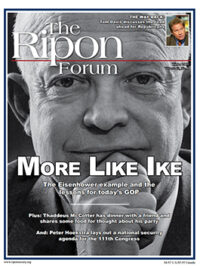 Public confidence in our nation’s financial system has been badly shaken by the extent of the financial meltdown. The effects are being felt not just on Wall Street, but in towns and communities all around my home state of Maine.
Public confidence in our nation’s financial system has been badly shaken by the extent of the financial meltdown. The effects are being felt not just on Wall Street, but in towns and communities all around my home state of Maine.
Who would have guessed that a global financial crisis could deal a serious blow to Maine’s iconic lobster industry? Lower demand has sent prices tumbling. To make matters worse, most of the lobster caught in Maine is sent to Canada for processing. Those processors were largely financed by banks in Iceland. The recent collapse of Iceland’s banking system has dried up credit for the Canadian processors who, as a result, have stopped purchasing Maine lobsters.
Our entire economy is struggling with a credit crisis spawned by mortgage defaults and their ripple effects in markets for mortgage-backed securities. Complex financial instruments that were poorly understood, not transparent, and often unregulated have added to the crisis.
America’s “mortgage crisis” is now a nightmare of converging forces that could lead to a deep and global recession.
America’s “mortgage crisis” is now a nightmare of converging forces that could lead to a deep and global recession. We see falling home prices, rising foreclosures, plunging consumer sales, increased unemployment, tremendous erosion of retirement savings, billions of dollars for emergency-stabilization programs, and a federal deficit that may reach a trillion dollars.
As we prepare for the 111th Congress, we must continue to repair the damage done and devise new protective measures.
That is why, on the very first day of the Senate’s post-election session, I introduced legislation that would close dangerous gaps in our oversight of financial markets and lead to comprehensive reform of our financial regulatory system.
Less than a year ago, the American financial world boasted five huge and long-established investment-bank holding companies: Bear Stearns, Lehman Brothers, Merrill Lynch, Goldman Sachs, and Morgan Stanley. Today, plagued by many billions of dollars in losses and write-offs, these investment banks have failed, been sold, or converted to banking organizations.
Astonishingly, under current federal law, no agency is responsible for supervising these enormous institutions, even though their safety and soundness has vast implications for the financial system and the economy. Think about that. Local credit unions and small community banks are subject to safety-and-soundness regulations, but these enormous Wall Street financial institutions are not.
My bill, The Financial Regulation and Reform Act, would assign safety-and-soundness regulation for investment-bank holding companies to the Federal Reserve. Without this reform, any new investment-bank holding company would fall into the same regulatory void as its predecessors.
Federal officials have pointed out another massive gap in their ability to monitor and manage risks to the financial system.
That is the lack of oversight for private contracts known as “credit default swaps,” or CDS. These contracts involve paying for protection against default, loss of value, or other “credit event” that might affect a financial asset such as a government or corporate bond, or a mortgage-backed security.
These CDS contracts, which amount to trillions of dollars in value, can have legitimate, risk-hedging or insurance-like functions. The problem is that they are not traded on regulated exchanges, are not officially reported, and are not even subject to record-keeping requirements.
As the failure of Lehman Brothers and the AIG insurance holding company showed, serious problems can arise when a major “credit event” suddenly reveals that massive claims for collateral posting or payment are converging on CDS parties that cannot meet their obligations. But regulators currently lack the information to spot or act against emerging threats from excessive commitments or inadequate reserves.
The fallout from such collapses extends far beyond the Wall Street firms’ investors, employees, and business partners. Hard-working Americans throughout the country feel the shock and despair when they read their 401 (k) and other retirement savings statements. Policy makers and regulators must have better information and stronger authority to help prevent future economic catastrophes.
My legislation would address this oversight problem in two ways. First, it would require reporting CDS contracts to the Commodity Futures Trading Commission, which will share data with the Federal Reserve. Second, my bill would add the force of law to the CDS clearinghouse initiative being jointly pursued by the Federal Reserve Bank of New York, the SEC, and the CFTC. We can’t rely on voluntary participation for such an important safeguard; a mandate is essential.
We also need a full review and overhaul of the complex and compartmented federal regulatory system that has gradually evolved since the 1930s. Congressional debate on regulatory reform would benefit from the advice of a special, expert commission modeled on the one we created to examine the terrorist attacks of September 11, 2001, and to recommend improvements in our homeland security. Our economic security demands an equally thorough review.
My bill incorporates a thoughtful proposal for such a commission proposed by my colleagues Senator Joe Lieberman and Senator Maria Cantwell, who have worked with me on earlier, bipartisan initiatives to improve federal regulation.
The commission’s six-month effort would produce a comprehensive reform proposal for financial regulation that can protect consumers and investors, avoid unreasonable burdens on industry and commerce, and enhance our ability to monitor the safety and soundness of our financial institutions.
This issue is a critical one that Congress should address without delay. The Financial Regulation Reform Act of 2008 should prompt a much-needed debate on the fundamental changes needed to modernize and strengthen our system for monitoring and regulating the financial markets that supply the lifeblood of growth for our country.
Susan Collins represents the State of Maine in the United States Senate.




